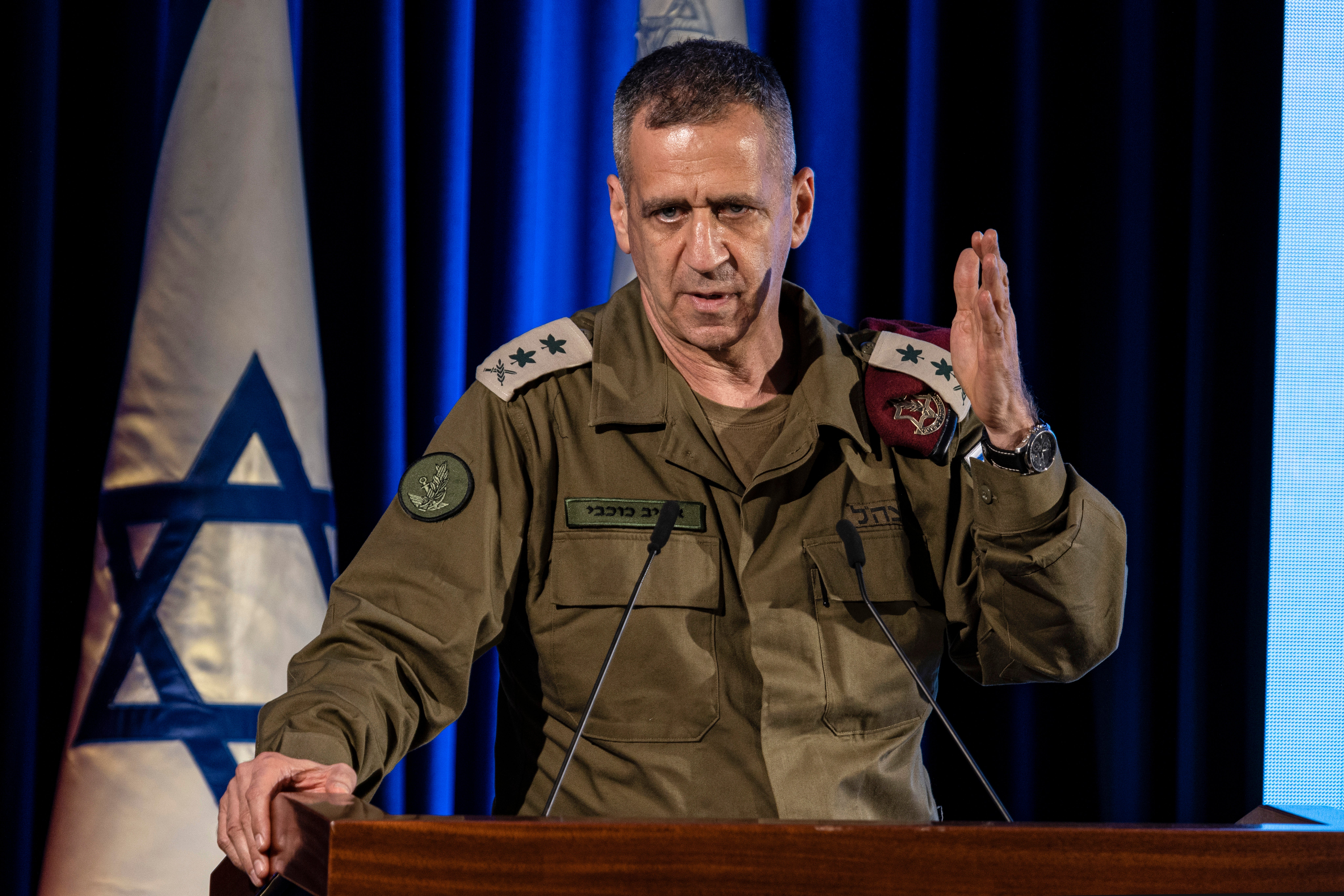Israeli military chief suggests Israel behind Syria strike
Israel’s military chief of staff has suggested that Israel was behind a strike on a truck convoy in Syria last month

Your support helps us to tell the story
From reproductive rights to climate change to Big Tech, The Independent is on the ground when the story is developing. Whether it's investigating the financials of Elon Musk's pro-Trump PAC or producing our latest documentary, 'The A Word', which shines a light on the American women fighting for reproductive rights, we know how important it is to parse out the facts from the messaging.
At such a critical moment in US history, we need reporters on the ground. Your donation allows us to keep sending journalists to speak to both sides of the story.
The Independent is trusted by Americans across the entire political spectrum. And unlike many other quality news outlets, we choose not to lock Americans out of our reporting and analysis with paywalls. We believe quality journalism should be available to everyone, paid for by those who can afford it.
Your support makes all the difference.Israel's military chief of staff strongly suggested on Wednesday that Israel was behind a strike on a truck convoy in Syria last month, giving a rare glimpse of Israel's shadow war against Iran and its proxies across the region.
Lt. Gen. Aviv Kochavi said Israeli military and intelligence capabilities made it possible to strike specific targets that pose a threat.
Without those capabilities, he said, a recent strike would not have been possible.
"We could have not known a few weeks ago about the Syrian convoy passing from Iraq to Syria. We could have not known what was in it, and we could have not known that out of 25 trucks, that was the truck. Truck No. 8 is the truck with the weapons," Kochavi told a conference at a university north of Tel Aviv.
He said such missions are often complicated by heavy anti-aircraft fire. “They need to attack. They need to strike. They need to return,” he said, adding: “They need to make sure in some of the attacks that they don't kill whoever shouldn't be killed.”
Israeli leaders have in the past acknowledged striking hundreds of targets in Syria and elsewhere in what it says is a campaign to thwart Iranian attempts to smuggle weapons to proxies like Lebanon's Hezbollah militant group or to destroy weapons caches. But such a specific reference to a particular strike is rare. As a policy, the military does not comment on suspected Israeli strikes beyond its borders or outside of the Gaza Strip.
The November strike Kochavi referred to hit tanker trucks carrying fuel and other trucks carrying weapons for the militias in Syria’s eastern province of Deir el-Zour, according to the Britain-based Syrian Observatory for Human Rights, an opposition war monitor. It added that at least 14 people, most of them militiamen, were killed in the strike.
The strike, along the border with Iraq, targeted Iran-backed militiamen, Syrian opposition activists said Wednesday. Some of those killed in the attack were Iranian nationals, according to two paramilitary officers in Iraq.
At the time, Israel declined to comment on the strike.
Kochavi said Israel's actions in the region had “totally disrupted” Iran's desire to entrench itself militarily along Israel's border. He said they've prevented Iran from placing hundreds of surface-to-surface and surface-to-air missiles in Syria and Lebanon as well as tens of thousands of militiamen in the area, as well as the creation of a Syrian arm of Hezbollah.
Iran is a main backer of Syrian President Bashar Assad and has sent thousands of Iran-backed fighters to help Syrian troops during the country’s 11-year civil war. Both Iran and Assad’s government are also allied with Hezbollah, which has fought alongside Assad’s forces in the war.
Israel consider Iran to be its chief enemy and has warned against what it views as its hostile activities in the region.